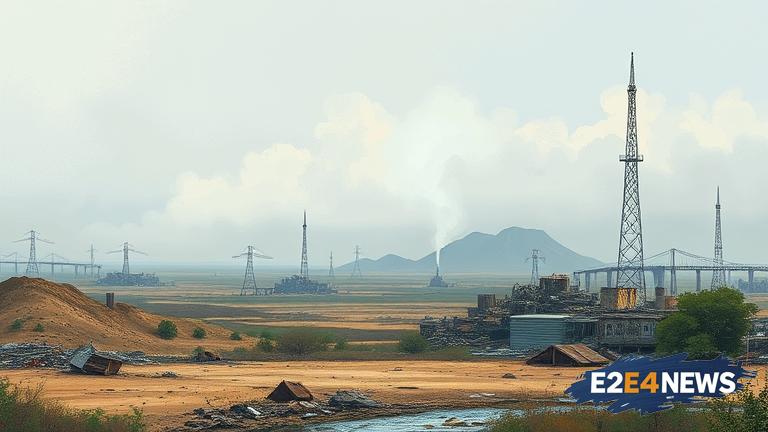Pakistan is facing a severe environmental crisis, with pollution and neglect combining to create a hybrid wasteland that threatens the health and well-being of its citizens. The country’s air, water, and soil are all being contaminated, with devastating consequences for the environment and human health. The situation is particularly dire in urban areas, where the lack of effective waste management and pollution controls has led to the proliferation of toxic waste and hazardous materials. The government has been criticized for its failure to address the crisis, with many accusing it of prioritizing economic growth over environmental protection. Despite the warnings of scientists and environmentalists, the government has continued to allow polluting industries to operate with impunity, while failing to provide adequate funding for environmental protection initiatives. The consequences of this neglect are being felt across the country, with citizens suffering from a range of health problems caused by pollution. Respiratory diseases, such as asthma and bronchitis, are on the rise, while the contamination of water sources has led to outbreaks of waterborne diseases like cholera and typhoid. The environmental crisis is also having a devastating impact on Pakistan’s ecosystem, with many species of plants and animals facing extinction due to habitat destruction and pollution. The country’s forests are being cleared at an alarming rate, while its rivers and lakes are being choked with plastic waste and industrial effluent. The government has announced plans to plant billions of trees and establish new national parks, but these initiatives are being hindered by a lack of funding and corruption. Meanwhile, the citizens of Pakistan are taking matters into their own hands, with many organizing protests and campaigns to raise awareness about the environmental crisis. Social media is also being used to mobilize public opinion and pressure the government into taking action. However, the scale of the crisis is so vast that it will require a concerted effort from all stakeholders, including the government, civil society, and the private sector, to address it. The international community is also being urged to provide support and assistance to help Pakistan tackle its environmental crisis. The United Nations has warned that the crisis poses a significant threat to the country’s sustainable development and human well-being. The World Health Organization has also expressed concern about the impact of pollution on human health, particularly in urban areas. The Asian Development Bank has pledged to provide funding and technical assistance to help Pakistan improve its environmental management and pollution controls. However, more needs to be done to address the root causes of the crisis, including the lack of effective governance and corruption. The government must take a more proactive approach to addressing the crisis, including increasing funding for environmental protection initiatives and enforcing laws and regulations to prevent pollution. The citizens of Pakistan must also continue to mobilize and demand action from their leaders to protect the environment and ensure a sustainable future. The environmental crisis in Pakistan is a complex and multifaceted issue that requires a comprehensive and coordinated response. It is a challenge that requires the collective efforts of all stakeholders, including the government, civil society, the private sector, and the international community. By working together, it is possible to mitigate the effects of the crisis and create a more sustainable and environmentally-friendly future for Pakistan. The country has the potential to become a leader in environmental protection and sustainable development, but it will require a fundamental shift in the way it approaches these issues. The government must prioritize environmental protection and sustainable development, and take a more proactive approach to addressing the crisis. The citizens of Pakistan must also continue to demand action from their leaders and hold them accountable for their failure to address the crisis. Only through collective action and a commitment to environmental protection can Pakistan hope to mitigate the effects of the crisis and create a more sustainable future.
